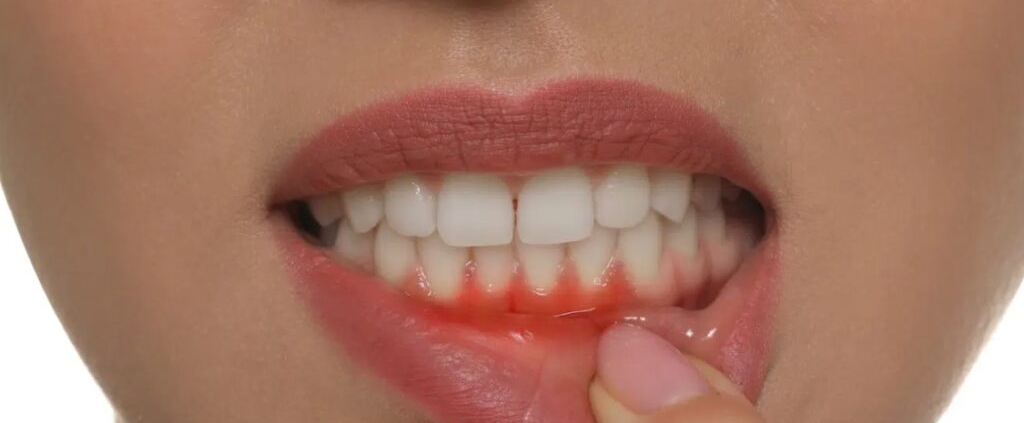5 Silent Signs of Gum Disease Most People Miss!
Gum disease doesn’t always scream for attention.
Sometimes, it just whispers.
And most people? They don’t hear it until it’s too late.
I didn’t, either. A few years ago, I thought my gums were fine.
Brushing twice a day, occasional flossing—should’ve been enough, right?
Wrong.
After a quick visit to a dental clinic in Deira (honestly, just went for a cleaning), I found out I had early gum disease. No bleeding, no pain—nothing obvious. Just subtle signs I completely ignored.
If you’re reading this, there’s a good chance you’re also overlooking something.
Let’s break it down.
Why Silent Signs of Gum Disease Matter
Most people think gum disease means red, swollen gums or painful brushing.
Those are later symptoms.
The real danger?
It starts quietly. No drama. No warnings.
And if it’s left alone, it can lead to:
- Gum recession
- Tooth loss
- Bad breath that won’t go away
- Even problems with your heart (yes, really)
So yeah—catching it early matters.
Let’s talk about the 5 silent signs of gum disease that most people miss.
5 Silent Signs of Gum Disease Most People Miss
1. Your Gums Look Pale or Shiny Instead of Pink
Healthy gums? They should look:
- Firm
- Matte (not shiny)
- Light to medium pink (unless your natural pigmentation varies)
But if your gums start looking pale, glossy, or kind of lifeless, that’s not a good sign.
I didn’t even notice this until my hygienist pointed it out.
I thought I was brushing too well or something.
Turns out that “clean” look was a sign my gums were shrinking back.
What to check:
- Do your gums look flatter than usual?
- Is the color fading or changing?
- Are they losing that firm, bouncy texture?
You might not think much of it, but a good dentist in Deira picked up on it right away.
2. You Have a Slight Metallic Taste in Your Mouth
This one’s weird. I noticed it when I started drinking tea in the morning.
There was this odd taste. Not terrible, just… different.
If your mouth tastes slightly metallic, especially after waking up, it might be blood.
Even if you’re not actively bleeding.
That taste is often a low-level symptom of early gum inflammation.
You might ignore it. I did for months. Thought it was just from a new toothpaste.
But that subtle taste? It can mean bacteria are active around your gum line.
Here’s the thing:
- Gum disease often causes small, slow bleeds
- Blood mixes with saliva and creates that taste
- No visible blood doesn’t mean it’s not happening
A checkup at a dental clinic in Deira helped me connect the dots.
3. Your Teeth Look Longer (But They’re Not Growing)
This sounds obvious—but it’s not.
We’re used to seeing our teeth every day, so changes happen slowly.
You don’t notice right away.
I only saw it after comparing an old photo to a new one.
My front teeth looked longer, more “toothy.”
What happened?
My gums were receding.
Receding gums don’t hurt at first. They just quietly pull back.
And that gives the illusion that your teeth are growing.
What to look for:
- Do your teeth look uneven at the gum line?
- Are you suddenly more sensitive to cold or sweet foods?
- Does food stick in places it didn’t before?
That’s often early-stage periodontal disease—something that needs attention.
Not later. Now.
4. Your Breath Feels Off—Even After Brushing
We all get bad breath sometimes.
Garlic, coffee, you know the deal.
But if your breath stays bad even after brushing and flossing, something’s up.
And no, mints won’t fix it.
Gum disease causes deep pockets to form between your teeth and gums.
Bacteria get stuck in there, and normal brushing doesn’t reach them.
That’s what causes that funk.
It’s not just about food particles. It’s about bacteria breeding under your gums.
Ask yourself:
- Do people step back slightly when you talk?
- Do you find yourself chewing gum constantly?
- Are you more self-conscious than usual?
I went through that. Tried every mouthwash out there.
What worked?
A deep cleaning at a dental clinic in Deira.
They cleaned under the gumline, where the real problem was.
5. You Clench or Grind More Than You Realize
This one surprised me.
What does grinding your teeth have to do with gum disease?
A lot.
When you grind or clench your teeth (especially at night), it puts pressure on your gums.
That constant stress weakens the gum structure. Over time, it leads to inflammation and bone loss.
I found out I was grinding in my sleep. Had no clue.
Some signs you might be doing the same:
- Morning jaw tension
- Headaches when you wake up
- Flat-looking teeth or chipped edges
- Clicking in your jaw when you chew
If your gums are already inflamed, grinding just makes things worse.
What To Do If You Notice These Signs
Okay, so what now?
Here’s what worked for me:
1. Schedule a gum check—even if nothing hurts
Book a visit to a dental clinic in Deira and ask specifically about periodontal health.
Don’t wait for pain.
2. Floss. Every. Single. Day.
Yeah, I know. But seriously—it’s not optional if you care about your gums.
Flossing removes food and the bacteria that cause silent inflammation.
3. Switch to a soft-bristled toothbrush
Hard brushing doesn’t mean better cleaning. It can damage your gums.
Be gentle. Let the brush do the work.
4. Watch your sugar and snacks
Frequent snacking (especially sugar or starch) fuels bacteria.
Rinse your mouth if you can’t brush.
5. Don’t skip your dental cleanings
Even if you think everything’s fine, a pro can spot issues way before you do.
My dentist told me most patients only come in after they’ve lost gum tissue.
Don’t be one of them.
The silent signs of gum disease are easy to miss.
But once you know what to look for, it’s easier to stay ahead of it.
Keep an eye on:
- Gum color and texture
- Metallic taste
- Receding gum line
- Persistent bad breath
- Jaw clenching or grinding
Don’t wait for a major symptom.
If you’re in Deira, just book a quick visit to a trusted dental clinic.
They’ll know what to look for—and it’s way easier to treat early than later.
Honestly, I wish I hadn’t waited.
So yeah—check your gums today. You might catch something you didn’t see yesterday.





Leave a Reply
Want to join the discussion?Feel free to contribute!